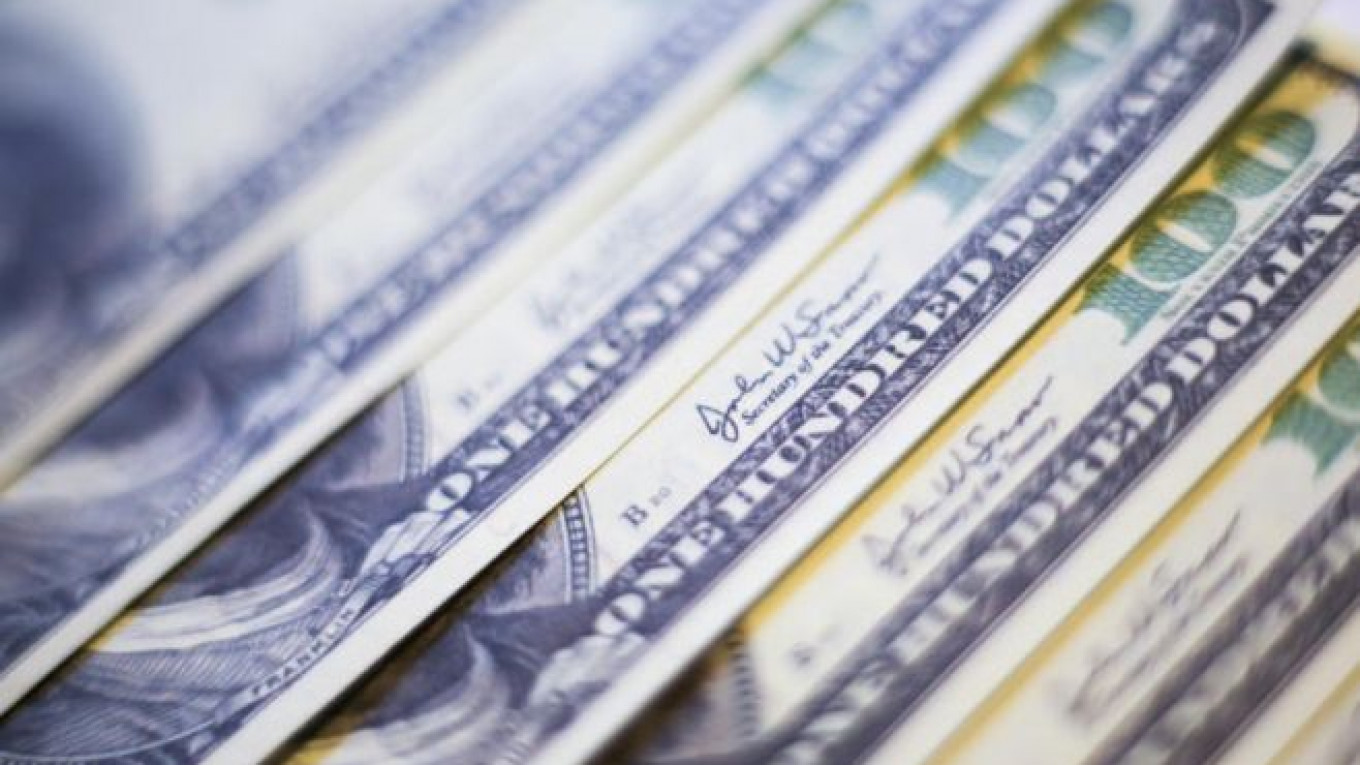Capital flight from Russia is forecast to hit $110 billion this year, the Economic Development Ministry said Thursday, as Western sanctions limit foreign investment and force Russian companies to pay off billions of dollars in foreign debt.
The ministry's base forecast anticipates that U.S. and EU sanctions over Moscow's actions in Ukraine will remain in place through the end of 2018.
"This means that Russian companies' access to world capital markets will remain limited and there will be quite a high level of capital outflow from the private sector due to debt repayments," the report said.
U.S. and EU sanctions imposed last year on Moscow for its role in the Ukraine crisis have closed off Russian companies' access to international financial markets, leaving them with a total of $109 billion in debt payments coming due this year and little chance of refinancing the loans, the Reuters news agency reported, citing Central Bank data.
Capital flight from Russia soared to an all-time high of $151.5 billion last year, nearly triple the outflow seen in 2013, according to Central Bank data.
The torrential outflow of cash was driven by debt repayments and a severe fall in investor confidence amid Western sanctions and a steep drop in the price of oil, Russia's chief export.
However, panic over the state of Russia's economy seems to have cooled this year as oil prices rise and a shaky truce between Kiev and Moscow-backed rebels in eastern Ukraine continues to hold.
Net capital outflow stood at $32.6 billion in the first three months of the year, down from $72.9 billion in the previous quarter, according to Central Bank data. A recovery in investor confidence and rising oil prices have also bolstered the ruble, which has risen more than 30 percent to the U.S. dollar since the beginning of February after falling 40 percent against the dollar last year.
The Economic Development Ministry predicted that capital flight would slow to $70 billion next year and to $55-60 billion in 2017 and 2018 as political conditions stabilized and investors regained confidence in the Russian economy.
"As international investors' faith returns and the investment climate and business conditions in the Russian economy improve, we expect a significant reduction in capital outflow," the ministry's report said.
A Message from The Moscow Times:
Dear readers,
We are facing unprecedented challenges. Russia's Prosecutor General's Office has designated The Moscow Times as an "undesirable" organization, criminalizing our work and putting our staff at risk of prosecution. This follows our earlier unjust labeling as a "foreign agent."
These actions are direct attempts to silence independent journalism in Russia. The authorities claim our work "discredits the decisions of the Russian leadership." We see things differently: we strive to provide accurate, unbiased reporting on Russia.
We, the journalists of The Moscow Times, refuse to be silenced. But to continue our work, we need your help.
Your support, no matter how small, makes a world of difference. If you can, please support us monthly starting from just $2. It's quick to set up, and every contribution makes a significant impact.
By supporting The Moscow Times, you're defending open, independent journalism in the face of repression. Thank you for standing with us.
Remind me later.






